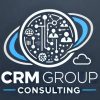In an increasingly competitive marketplace, businesses must not only invest in robust Customer Relationship Management (CRM) systems but also adopt innovative marketing strategies to make the most of these tools. The modern CRM is more than just a database—it is a powerful engine for driving personalized customer interactions, automating marketing processes, and optimizing sales. This thought leadership article explores cutting-edge marketing strategies that, when combined with an advanced CRM system, can help businesses stay ahead of the curve and maximize customer engagement.

1. Data-Driven Personalization at Scale
One of the most significant advantages of CRM systems is their ability to store and analyze vast amounts of customer data. This information is invaluable when it comes to personalization, allowing marketers to tailor messages, offers, and content based on each customer’s preferences, behavior, and past interactions.
Innovative Strategy: Leverage CRM data to create personalized customer journeys across multiple channels. For instance, use insights from purchase history to send highly targeted product recommendations via email, or create dynamic website content that adapts based on the visitor’s behavior. This level of personalization helps build stronger relationships and improves conversion rates.
Pro Tip: Utilize AI-powered CRM tools to automate personalization at scale. AI can analyze customer behavior in real time and automatically send relevant messages or offers at the most opportune moments.

2. Omnichannel Marketing Integration
In today’s digital landscape, customers interact with brands across multiple platforms—social media, email, websites, mobile apps, and more. A cohesive omnichannel marketing strategy ensures that customers have a seamless experience, no matter which touchpoint they use. CRM platforms can serve as the backbone of an effective omnichannel strategy by providing a unified view of each customer’s journey.
Innovative Strategy: Use your CRM to manage and track interactions across all channels, ensuring consistent messaging and a unified customer experience. For example, a customer who clicks on an email link can be retargeted with relevant ads on social media, and their preferences can be reflected in personalized website content.
Pro Tip: Adopt a CRM that integrates seamlessly with marketing automation tools, allowing you to create coordinated campaigns across email, social media, and other platforms with minimal manual effort.
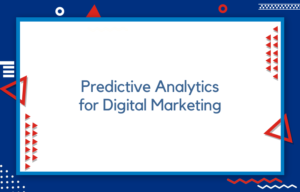
3. Predictive Analytics for Marketing Campaigns
Predictive analytics is a game-changer for CRM-driven marketing strategies. By analyzing historical customer data, predictive models can forecast future behavior, such as which leads are most likely to convert or which customers are at risk of churn. This allows marketers to create more targeted and effective campaigns.
Innovative Strategy: Use predictive analytics within your CRM to segment customers based on their likelihood to purchase or engage. Then, tailor marketing campaigns accordingly—focus high-effort campaigns on leads with the highest conversion potential and develop retention strategies for customers showing signs of churn.
Pro Tip: Combine predictive analytics with AI-driven lead scoring to help your sales and marketing teams prioritize their efforts, ensuring that resources are focused on the most promising opportunities.
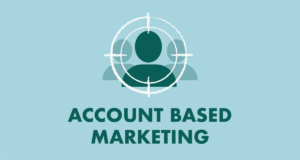
4. Account-Based Marketing (ABM) with CRM
Account-based marketing (ABM) is a highly targeted marketing strategy that focuses on nurturing key accounts rather than casting a wide net. CRM systems are essential for executing ABM campaigns, as they allow marketers to gather deep insights about target accounts and personalize messaging based on each account’s specific needs.
Innovative Strategy: Use CRM data to create detailed profiles of target accounts, including information about key decision-makers, previous interactions, and pain points. Develop highly customized campaigns that address the unique challenges and goals of each account. Personalize everything from emails to content offers, and ensure alignment between marketing and sales teams to drive results.
Pro Tip: Integrate ABM tools with your CRM to enable seamless collaboration between sales and marketing, making it easier to track progress and measure the ROI of ABM initiatives.
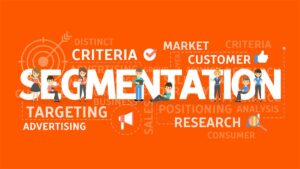
5. Customer Segmentation for Hyper-Targeted Campaigns
Customer segmentation is one of the most powerful CRM strategies for effective marketing. By dividing your customer base into segments based on demographics, behavior, purchase history, and other data points, you can deliver more relevant messages to each group.
Innovative Strategy: Take customer segmentation a step further by using advanced CRM tools to create hyper-targeted micro-segments. For example, instead of targeting all recent buyers with the same offer, segment customers based on the products they purchased and their likelihood of making repeat purchases. This hyper-targeted approach increases the chances of converting leads into loyal customers.
Pro Tip: Use dynamic segmentation, which updates in real time based on customer behavior. This allows you to quickly adjust marketing campaigns to align with changing customer preferences.

6. CRM-Driven Content Marketing
Content marketing continues to be a cornerstone of digital marketing strategies, and CRMs play an essential role in enhancing the effectiveness of content efforts. By leveraging customer data, businesses can create highly relevant content that resonates with specific segments of their audience.
Innovative Strategy: Use CRM insights to develop content tailored to different customer segments. For example, if your CRM data shows that a particular segment is interested in a specific product line, create blog posts, case studies, or videos that address their unique needs and questions. By delivering content that directly speaks to the customer’s pain points, you can build trust and move them further down the sales funnel.
Pro Tip: Use your CRM to track content performance, such as how different segments engage with your blog posts, videos, or case studies. This data can inform future content creation and help you fine-tune your strategy.
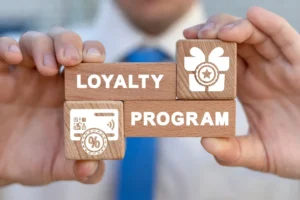
7. Enhanced Customer Loyalty Programs
Customer loyalty programs have long been a staple of CRM marketing, but new technologies are making it easier than ever to create personalized, data-driven loyalty initiatives. CRM platforms allow businesses to track customer interactions and behaviors, providing the insights needed to design more effective rewards programs.
Innovative Strategy: Use CRM data to design loyalty programs that are personalized based on customer preferences and behavior. For example, offer rewards tailored to individual customers’ purchasing habits, such as discounts on their most frequently bought items or exclusive offers for high-value customers. Automated reminders for loyalty rewards and points expiration can also be sent through your CRM to keep customers engaged.
Pro Tip: Incorporate gamification elements into your loyalty program, such as badges, levels, or challenges, and track progress through your CRM. This can incentivize customers to engage more deeply with your brand and build long-term loyalty.

8. Harnessing AI for Smarter Campaigns
Artificial Intelligence (AI) is taking CRM-driven marketing to new heights by enabling smarter, more efficient campaigns. AI can analyze vast amounts of data, identify patterns, and predict customer behavior, allowing businesses to automate and optimize their marketing strategies.
Innovative Strategy: Implement AI-powered tools within your CRM to automate email campaigns, retarget customers based on their behavior, and send personalized recommendations. AI can also help identify optimal times to send marketing messages, boosting open rates and conversions.
Pro Tip: Use AI for A/B testing and campaign optimization. AI algorithms can analyze which content, offers, and channels are performing best and adjust campaigns in real time to maximize results.
Conclusion
In today’s digital-first world, CRM is more than just a sales tool—it’s a vital engine for driving innovative marketing strategies. By combining CRM data with cutting-edge technologies like AI, predictive analytics, and omnichannel marketing, businesses can deliver personalized, targeted campaigns that drive customer engagement and foster long-term loyalty. As CRM systems continue to evolve, marketers must embrace these innovations to stay ahead in a rapidly changing landscape.
